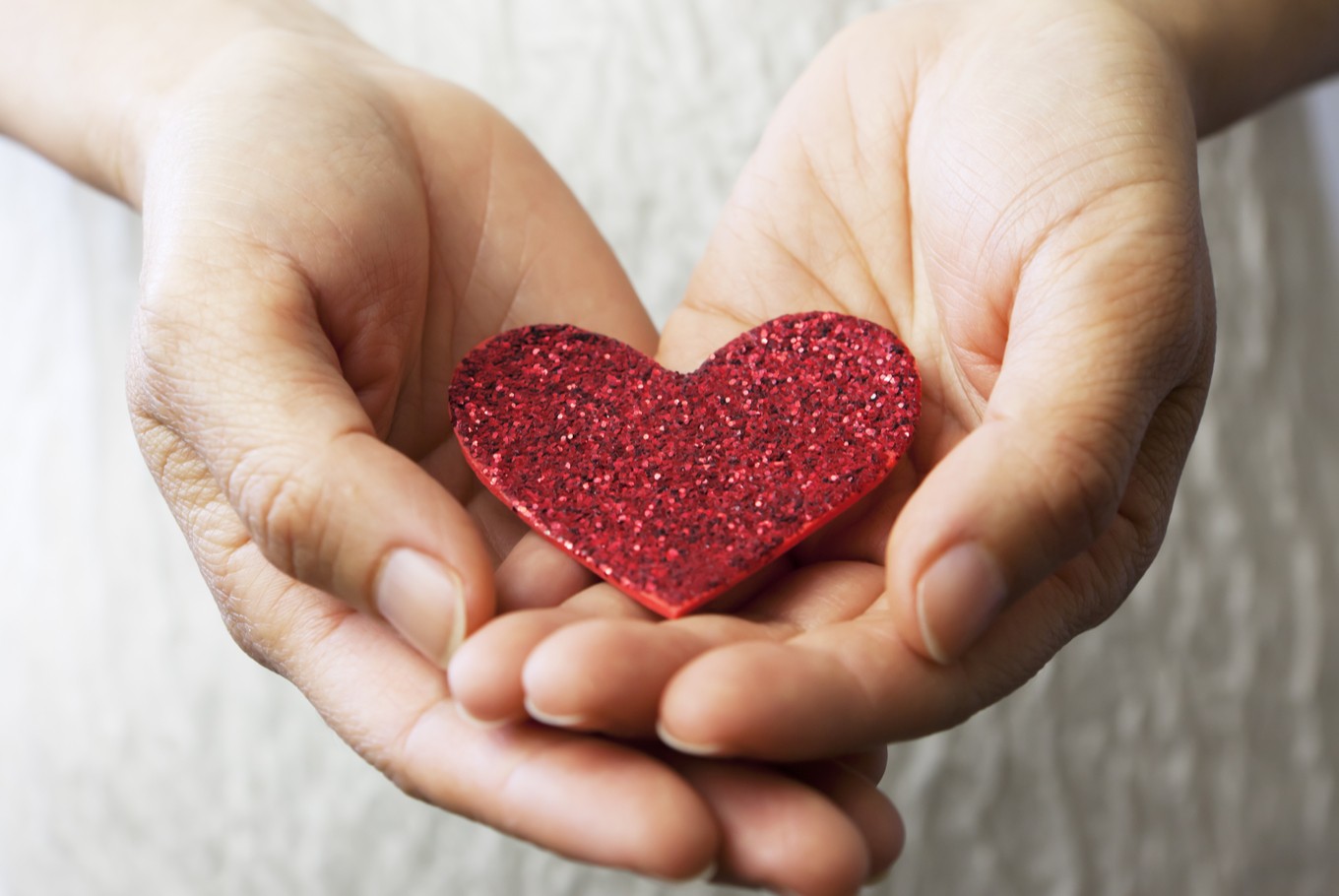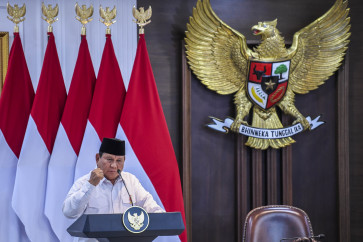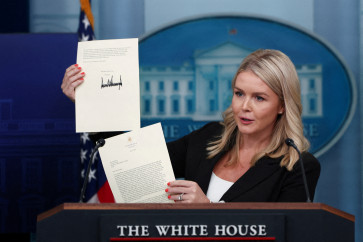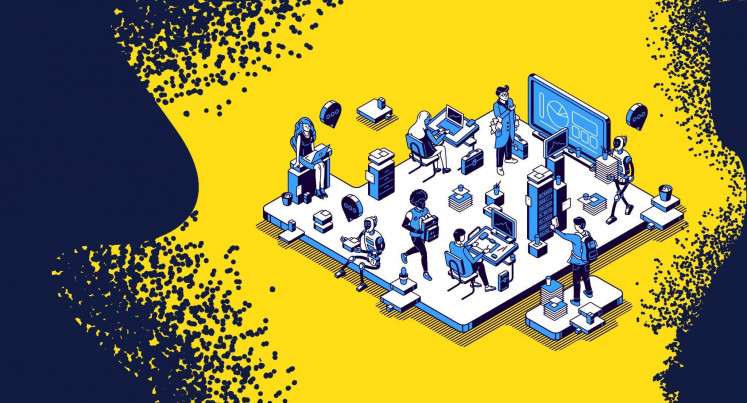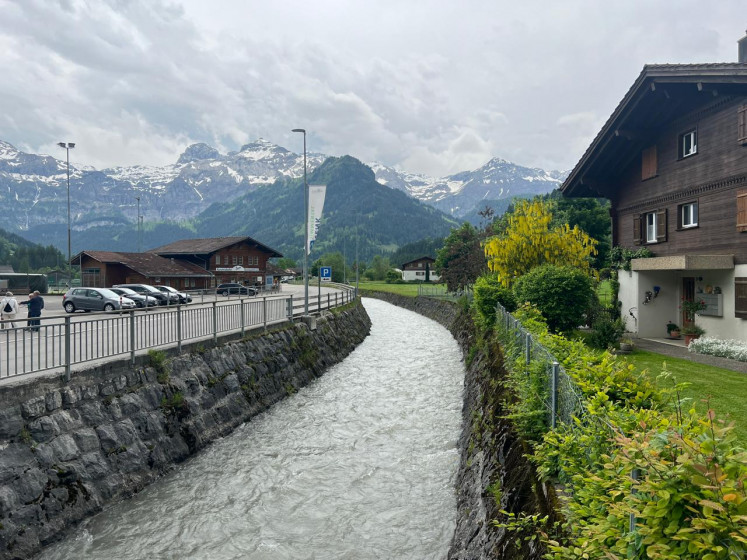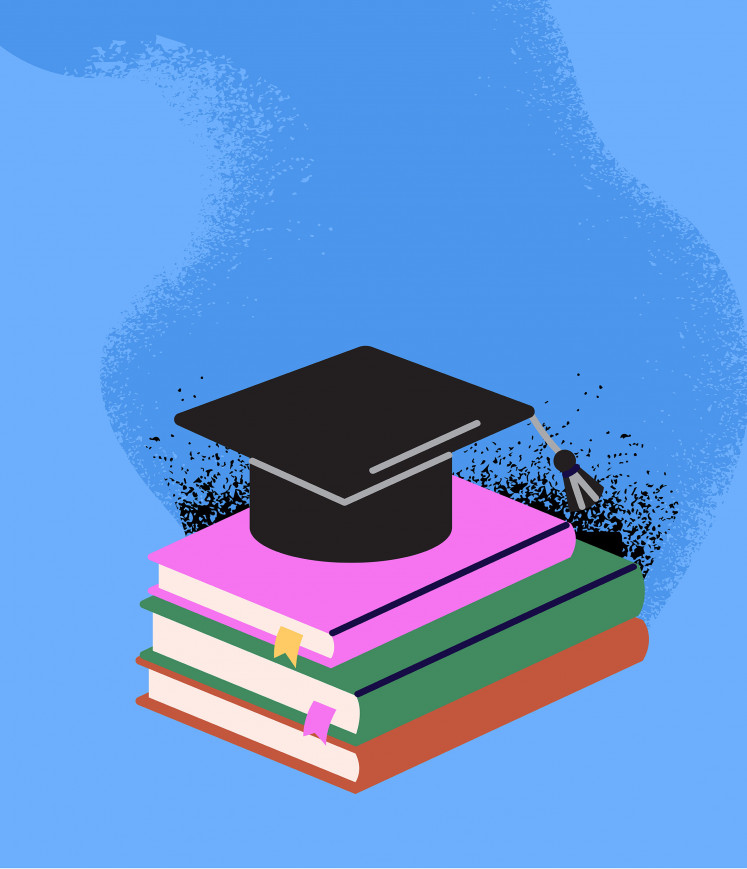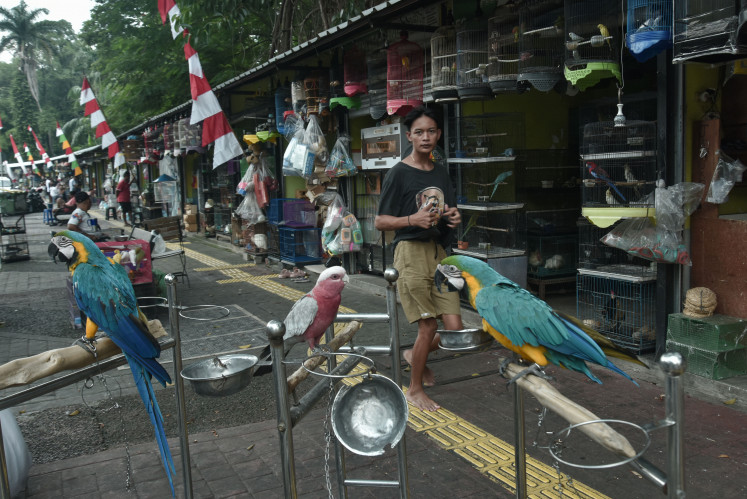Popular Reads
Top Results
Can't find what you're looking for?
View all search resultsPopular Reads
Top Results
Can't find what you're looking for?
View all search resultsEssay: The human condition
Forgiveness does not mean ever forgetting those things; it is imperative to remember them so people can learn from our experiences.
Change text size
Gift Premium Articles
to Anyone
I
watched a video recently posted by Irish singer Sinéad O’Connor, in which she filmed her mental breakdown and talked about her experience of surviving mental illness. “My life has revolved around not dying and that’s not living!” she said while weeping, pleading for empathy and compassion — instead of stigma and rejection — for millions of people with the same ailment.
Mental illness is caused by neurochemical imbalances that are triggered by distressing experiences — they often have to do with abuse and violence. After watching the video, I listened to interviews where O’Connor talked about how she survived child abuse.
I read an essay by Michael Agresta in The Atlantic on how the Catholic Church exacerbated child abuse in Ireland — which O’Connor protested by ripping up a picture of Pope John Paul II after performing Bob Marley’s song “War” on Saturday Night Live in October 1992.
Due to the stronghold of patriarchy — also wielding control through the Catholic Church and other institutionalized religions — on the masses, people reacted to the incident by shooting the messenger: they condemned O’Connor for being disrespectful of the institution without looking at the injustices perpetuated by the church itself.
I was appalled by this injustice, and how O’Connor, already a victim of the system, was re-victimized again by the patriarchal society. Her songs actually saved my life when I was physically and mentally attacked by my schoolmates, while having to deal with my dysfunctional family at 13.
Recently, I ended a relationship. I was obsessed with this former partner who had told me about his childhood traumas, about being bullied by his classmates while also being ostracized by his family who despised him for being gay. I was obsessed with the idea that we shared the same pain and thereby could heal together.
He, unfortunately, started to draw me into a destructive co-dependent relationship. I realized I could never fix someone else and make him happy. I could only heal myself and make myself happy.
Trying to make sense of my own past, I went to various academic books on violence and trauma lent to me by my professor Nani Nurrachman. Her father was Sutoyo Siswomiharjo, a general who was killed on Sept. 30, 1965. I began to understand how violence is tied to society’s power structure.
While I understand the antecedents and consequences of violence, I cannot begin to forgive the wrongdoers, and I still blame them for my emotional dysfunction as an adult. While I thought I had already forgiven these people, I had only been burying them in the darkest depth of my consciousness by distracting myself through an overwhelming load of work and activities.
Late last month, I had yet another emotional meltdown. Thank God, a brief one compared to previous ones I experienced in 2016 and 2014. This time I was saved by literature. Through literary works, I discovered role models of resilience and strength — and related to them on an emotional level — which complemented my academic knowledge of the human condition.
Kepustakaan Populer Gramedia’s editor Christina M. Udiani once told me that literature — along with the arts, as O’Connor’s music does for me — could actually bolster our resilience by showing us the human frailty we share. She added that true-to-life characters in literary works could actually serve as our role models of resilience.
The works that kept me sane in my latest breakdown were Ha Jin’s A Map of Betrayal, Yu Hua’s Chronicles of a Blood Merchant and, despite it ending tragically, VS Naipaul’s A House for Mr. Biswas. The characters show how, as adults, we can actually find redemption from our own difficult past. Freedom Writers — in which the characters are beacons of resilience — meanwhile, was a film that I had in mind at the time.
Complementing the books with a discussion with writer Ni Made Purnama Sari, I arrived at the conclusion that we all share the same frailties as human beings. Some are able to sublimate their pain and transcend it into wisdom — like the people who have been compassionate toward me and others; some — like my family members or classmates — just fail to make that quantum leap.
I understand, for instance, that people who have bullied me are also victims of the system that has corrupted them and made them violent. Instead of transmuting the pain into compassion, they have chosen to pass it on to others. But we can also choose to break the cycle of violence.
While it is not our job to help the abusers or perpetrators of violence, we can choose to forgive them. Forgiveness does not mean ever forgetting those things; it is imperative to remember them so people can learn from our experiences.
Thanks to my learning process and reading these books, a sentence uttered by my journalism mentor, Margaret “Maggie” Agusta, finally made perfect sense to me: “Forgiveness means to have compassion and to remain indifferent”.
“To have compassion” means to understand our shared human frailty and that not everyone is able to overcome their frailty; some are defeated by it and choose to tread the path of destruction instead. “Indifference” means moving away from people who are hurting you, recognizing the problem is with them who happen to project their unhappiness on to you.
This is why Purnama also suggested I avoided old classmates who might trigger old emotional pain to gradually reduce the emotional intensity of my trauma. I have minimized contact with family members as well.
Some streams in psychotherapy argue you have to confront your fears — which sometimes involves exposing oneself to the source of one’s trauma — to heal yourself. After discussing with Purnama, I actually became aware that healing has nothing to do with the perpetrators — it is a private process that involves making peace with yourself and choosing to transcend your pain. Avoiding people who have hurt you in the past does not signify cowardice or weakness.
Once you have chosen to walk the path of healing, you will find people like you who will accompany you on your journey. “We cannot choose the families we are born into [nor the classmates we go to school with, I should add], but as we become adults, we can choose our own families — our friends [and people whom we care about and care about us],” Maggie concluded our conversation this evening.
Instead of leading us down the path of destruction, let our shared human frailty bind us together in a compassionate energy field.

